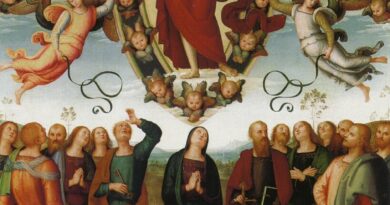Twentyth Sunday of Ordinary Time
Massimo Palombella

Today’s Gospel (Mt 15:21-28) recounts the story of the Canaanite woman who asks Jesus for help for her sick daughter, and her plea for help is made insistently to the point that the disciples beg Jesus to grant her because “she comes after us crying out”.
In general, asking for help is not easy. It is a legacy of an education received, we have an image to protect, but above all, to ask for help is to recognise our weakness, our neediness, our ‘not succeeding any more’, despite all the skilful techniques adopted.
To ask for help is to get in touch with our weakness and this is part of a healthy journey of self-acceptance, just as when we agree to go to the doctor because we recognise that we are not well.
God, the true God, not the one we invent to be apparently well, is waiting for us with our weakness, with our request for help, without those ingrained patterns, those structured defences that absorb so much energy and illude us into living. He waits for us to love us as we need and lead us to life in abundance.
The introit of today’s celebration is taken from Psalm 83 (Ps 83, 10. 11 et 2. 3) with the following text:
“Protéctor noster, áspice, Deus, et réspice in fáciem Christi tui:
quia mélior est dies una in átriis tuis super mília.”
(Behold, O God our protector, and consider the face of your Anointed;
for one day in your house is better than a thousand elsewhere).
The attached music, in Gregorian Chant, is taken from the Gradual Triplex published in Solesmes in 1979. The music track can be found on YouTube, where there is no indication of interpretation.
A blessed Sunday and heartfelt greetings.


